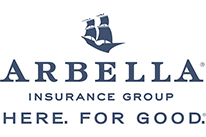Picking out auto insurance is complicated, to say the least. Although drivers have to insure their cars as mandated by their state, each insurance company has the freedom to set their own rates. Therefore, you might get very different rates from different insurance companies, which can make the process really confusing. How are you supposed to know which insurance to choose?
To make it easier to pick the right car insurance, we’ve compiled an easy-to-use guide. It will explain the basic options and methods for reducing your premiums.


Auto insurance is used to cover drivers against accidents and theft, with the insurance company agreeing to pay any losses in exchange for the client paying a premium on a regular basis – usually every month or six months.
Auto insurance typically covers:
Property – any damage to a vehicle or the theft of it.
Liability – any legal responsibilities incurred by causing injuries or property damage.
Medical – expenses related to treating bodily injuries or organizing a funeral, or compensation for lost wages due to inability to go to work.
Under Massachusetts law, there are several types of compulsory insurance.
This will cover the cost of any injuries and medical expenses, lost income, and the death of another driver in an accident where you are found to be at fault.
Also known as medical payments, PIP will cover any medical expenses, replacement services, or lost wages (usually 75 percent) that you or anyone else who was in your vehicle during the accident has to deal with.
This coverage is required to cover any accidents involving another motorist without insurance, or after a hit-and-run. Additionally, you can also purchase underinsured auto insurance, for when motorists have inadequate coverage.
This is meant to cover the cost of any damage caused to a vehicle or another property, e.g., a wall or a fence, during an accident.
See More: Commercial Car Insurance
In addition to compulsory coverage, there are several optional ones. Most compulsory insurance is designed to cover damage caused to other cars, but not to your own vehicle. Therefore, drivers can also consider the following coverages.
This will protect you from large car repair costs following a collision with another vehicle or object.
This will cover you against theft and damage other than that caused by a collision, such as falling trees and vandalism
The standard car policy usually only covers damage to the windshield. To cover all the glass in a car, you would need to get additional glass coverage, such as full glass coverage.

Drivers can increase the limits of their coverage as well as purchase specific services, for instance:
Related Insurance: Classic Car Insurance
Once you have decided upon the desired extent of the coverage, the next step is to find the cheapest price. It is best to shop around and compare rates by requesting quotes from multiple auto insurance companies. They will all consider the same primary factors, such as:
Please keep in mind that insurers should only use factors related to the vehicle and prior driving behavior in calculating the premium. Sex, marital status, race, beliefs, nationality, religion, age or any other personal factor cannot be used to determine the cost of your insurance.
It is important to remember that the basic limits offered by insurance companies won’t always cover all the costs and payments related to an accident. Therefore, it is often practical to opt for higher limits of liability, even if it will raise your premium.
Additionally, in some cases, individual policies will not be required due to other existing insurances or certain lifestyles. When paying for a portion of a claim out-of-pocket, it is called a deductible.
Some other things to consider:
There are some discounts for certain groups of drivers, e.g., for people over 65 years of age.
Some policies cover multiple cars or give a discount for devices that reduce the risk and extent of injuries, such as placing a speed monitoring box in your car.
When it comes to reducing your premiums, there are two things to think about: the car and how you drive. Reducing the risk as a driver involves ensuring that you have a good driving record. Key factors include how many years it has been since your last incident (if you have ever had any), the number of at-fault accidents, and how many traffic violations you have committed.
Merit rating plans will lower your premiums based on the factors described above. Past misdemeanors usually have a time cap on how long after their occurrence they can impact the premium.
Given all of that information, it is reasonable to appeal any incident in which you were considered at fault. For instance, if someone collided with the rear of another vehicle, then they would be deemed to be responsible more than half of the time. Following the same logic, you should also try to appeal to traffic violations.
For more information regarding auto insurance in Massachusetts, visit the Division of Insurance’s website or get in touch with one of your local car insurance companies.
If you need help with finding the best car insurance policy, we at Econosurance know how to compare policies and find the coverage that fits your needs. Start by completing the free quote request on our website.




